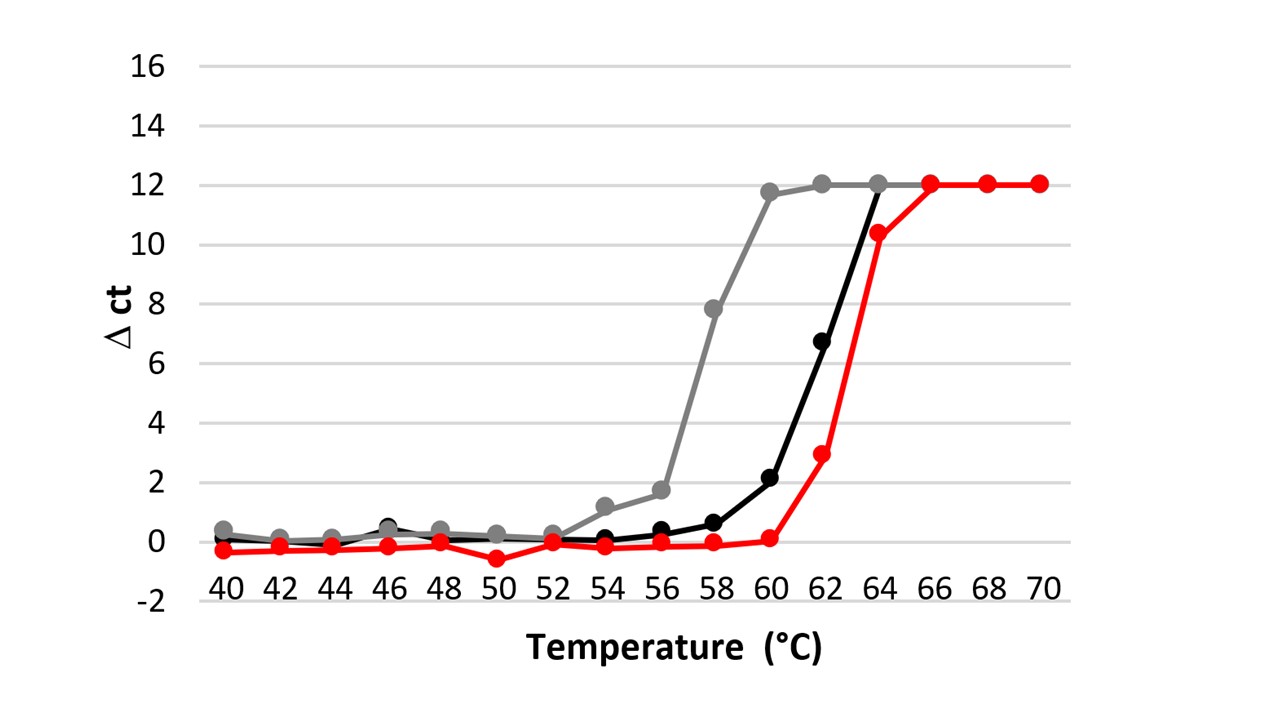Ordering
*link will take you to our exclusive distribution partner site
*link will take you to our exclusive distribution partner site
Thermostable Reverse Transcriptase is a robust thermostable MMLV-RT, designed to reduce RNase H activity and increase thermal stability. The enzyme offers higher cDNA yields and improved efficiency on GC-rich target RNAs and RNA with high secondary structure, such as viral RNA sequences.
Traditional Moloney Murine Leukemia Virus Reverse Transcriptase (MMLV-RT) is not thermostable and can only maintain its enzymatic activity at relatively low temperatures (up to 50°C). However for cDNA synthesis, a higher reaction temperature is desirable as it reduces RNA secondary structures which can inhibit reverse transcription and it minimizes nonspecific primer binding.
Meridian Thermostable Reverse Transcriptase has higher thermal stability and reduced RNase H activity. The enzyme can be used to synthesize first-strand cDNA at temperatures up to 60°C which improves the cDNA yield from difficult RNA targets that require higher temperature to denature strong secondary structures.

Fig. 1. Comparison of thermostability
Performance of Meridian’s Thermostable Reverse Transcriptase (red), standard MMLV-RT (grey) and a thermostable reverse transcriptase from supplier X (black) after pre-incubation at 40°C to 70°C for 10 mins, in a multiplex one-step RT-qPCR assay. The data illustrates the increased thermal stability of Thermostable Reverse Transcriptase when compared to other MMLV-RT enzymes and its ability to efficiently synthesize cDNA at temperatures up to 60°C.
|
Reagent |
10,000 units |
4 x 10,000 units |
|
Thermostable Reverse Transcriptase |
50 µL |
4 x 50 µL |
|
5x Reaction Buffer |
1 mL |
4 x 1 mL |
Thermostable Reverse Transcriptase can be stored for up to 12 months at -20°C. Repeated freeze/thaw cycles should be avoided.
When stored under the recommended conditions and handled correctly, full activity of the kit is retained until the expiry date printed on the outer box label.
On dry or blue ice